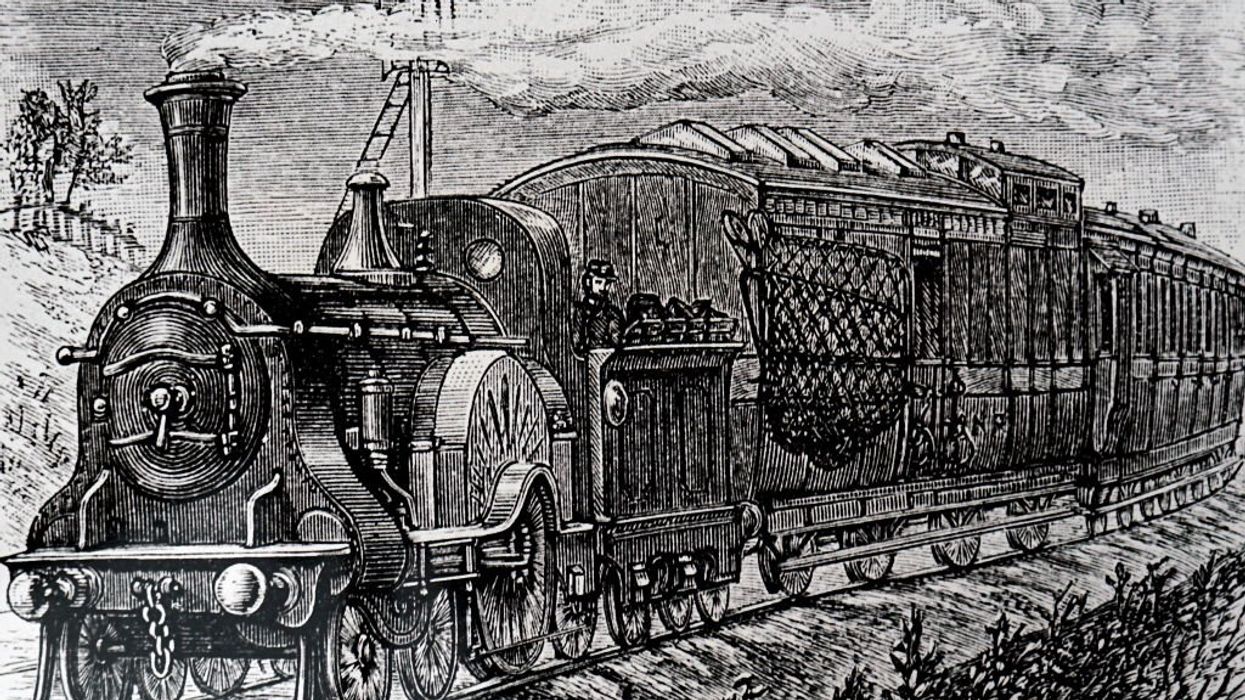For most Americans, the 1980s was marked by big hair, epic lightsaber battles, and school-skipping Ferris Bueller dancing his way into the hearts of millions.
But for Bernie Sanders — who, by the way, was at that time the oldest-looking 40-year-old in human history — the 1980s was a period of important personal milestones.
Prior to his successful 1980 campaign to become mayor of Burlington, Vermont, Sanders was mostly known around the Green Mountain State as a crazy, wildly idealistic socialist. (Think Karl Marx meets Don Quixote.) But everything started to change for Sanders when he became famous—or, in the eyes of many, notorious—for being "America's socialist mayor."
As mayor, Sanders' radical ideas were finally given the attention he had always craved but couldn't manage to capture. This makes this period of his career particularly interesting to study. Unlike today, the Bernie Sanders of the 1980s wasn't concerned with winning over an entire nation — just the wave of far-left New York City exiles that flooded Vermont in the 1960s and 1970s — and he was much more willing to openly align himself with local and national socialist and communist parties.
Over the past few weeks, I have been reading news reports of Sanders recorded in the 1980s — because, you know, that's how guys like me spend their Saturday nights — and what I've found is pretty remarkable.
For starters, Sanders had (during the height of the Soviet Union) a very cozy relationship with people who openly advocated for Marxism and communism. He was an elector for the Socialist Workers Party and promoted the party's presidential candidates in 1980 and 1984.
To say the Socialist Workers Party was radical would be a tremendous understatement. It was widely known SWP was a communist organization mostly dedicated to the teachings of Marx and Leon Trotsky, one of the leaders of the Russian Revolution.
Among other radical things I've discovered in interviews Sanders conducted with the SWP's newspaper — appropriately named The Militant (seriously, you can't make this stuff up) — is a statement by Sanders published in June 1981 suggesting that some police departments "are dominated by fascists and Nazis," a comment that is just now being rediscovered for the first time in decades.
In 1980, Sanders lauded the Socialist Workers Party's "continued defense of the Cuban revolution." And later in the 1980s, Sanders reportedly endorsed a collection of speeches by the socialist Sandinistas in Nicaragua, even though there had been widespread media reports of the Sandinistas' many human rights violations prior to Sanders' endorsement, including "restrictions on free movement; torture; denial of due process; lack of freedom of thought, conscience and religion; denial of the right of association and of free labor unions."
Sanders also traveled to Nicaragua and met with socialist President Daniel Ortega. He later called the trip a "profoundly emotional experience."
Sanders also traveled to Nicaragua and met with socialist President Daniel Ortega. He later called the trip a "profoundly emotional experience."
Comrade Bernie's disturbing Marxist past, which is far more extensive than what can be covered in this short article, shouldn't be treated as a mere historical footnote. It clearly illustrates that Sanders' brand of "democratic socialism" is much more than a $15 minimum wage and calls for single-payer health care. It's full of Marxist philosophy, radical revolutionary thinking, anti-police rhetoric, and even support for authoritarian governments.
Millions of Americans have been tricked into thinking Sanders isn't the radical communist the historical record — and even Sanders' own words — clearly show that he is. But the deeper I have dug into Comrade Bernie's past, the more evident it has become that his thinking is much darker and more dangerous and twisted than many of his followers ever imagined.
Tomorrow night, don't miss Glenn Beck's special exposing the radicals who are running Bernie Sanders' campaign. From top to bottom, his campaign is staffed with hard-left extremists who are eager to burn down the system. The threat to our constitution is very real from Bernie's team, and it's unlike anything we've ever seen before in a U.S. election. Join Glenn on Wednesday, at 9 PM Eastern on BlazeTV's YouTube page, and on BlazeTV.com. And just in case you miss it live, the only way to catch all of Glenn's specials on-demand is by subscribing to Blaze TV.

 Christopher Furlong / Staff | Getty Images
Christopher Furlong / Staff | Getty Images
 Universal History Archive / Contributor | Getty Images
Universal History Archive / Contributor | Getty Images Fabrizio Villa / Stringer | Getty Images
Fabrizio Villa / Stringer | Getty Images